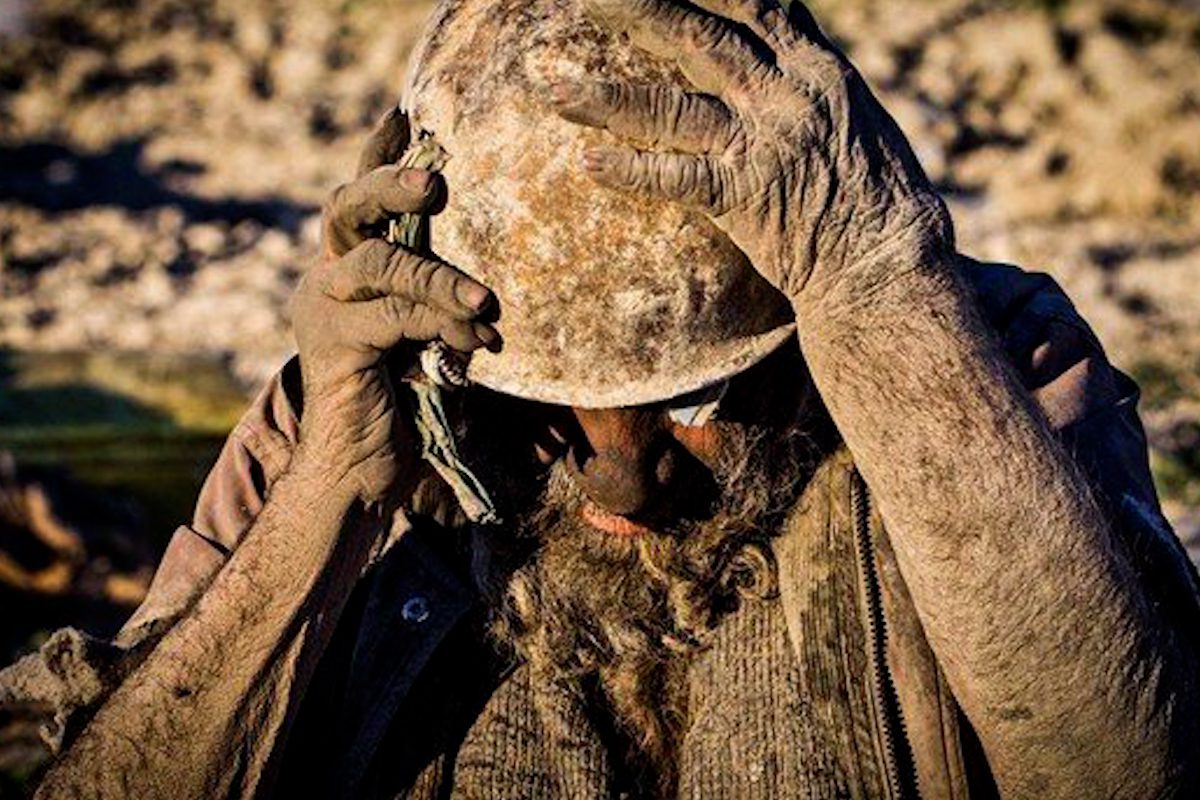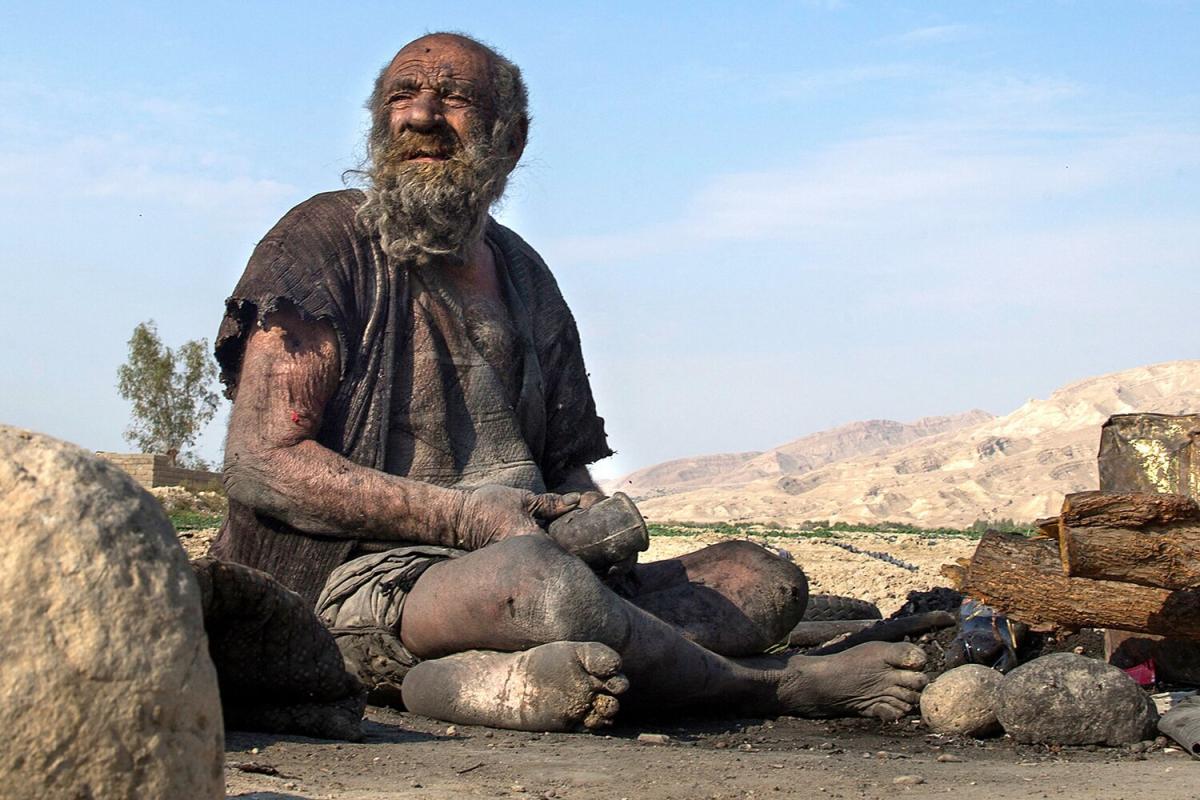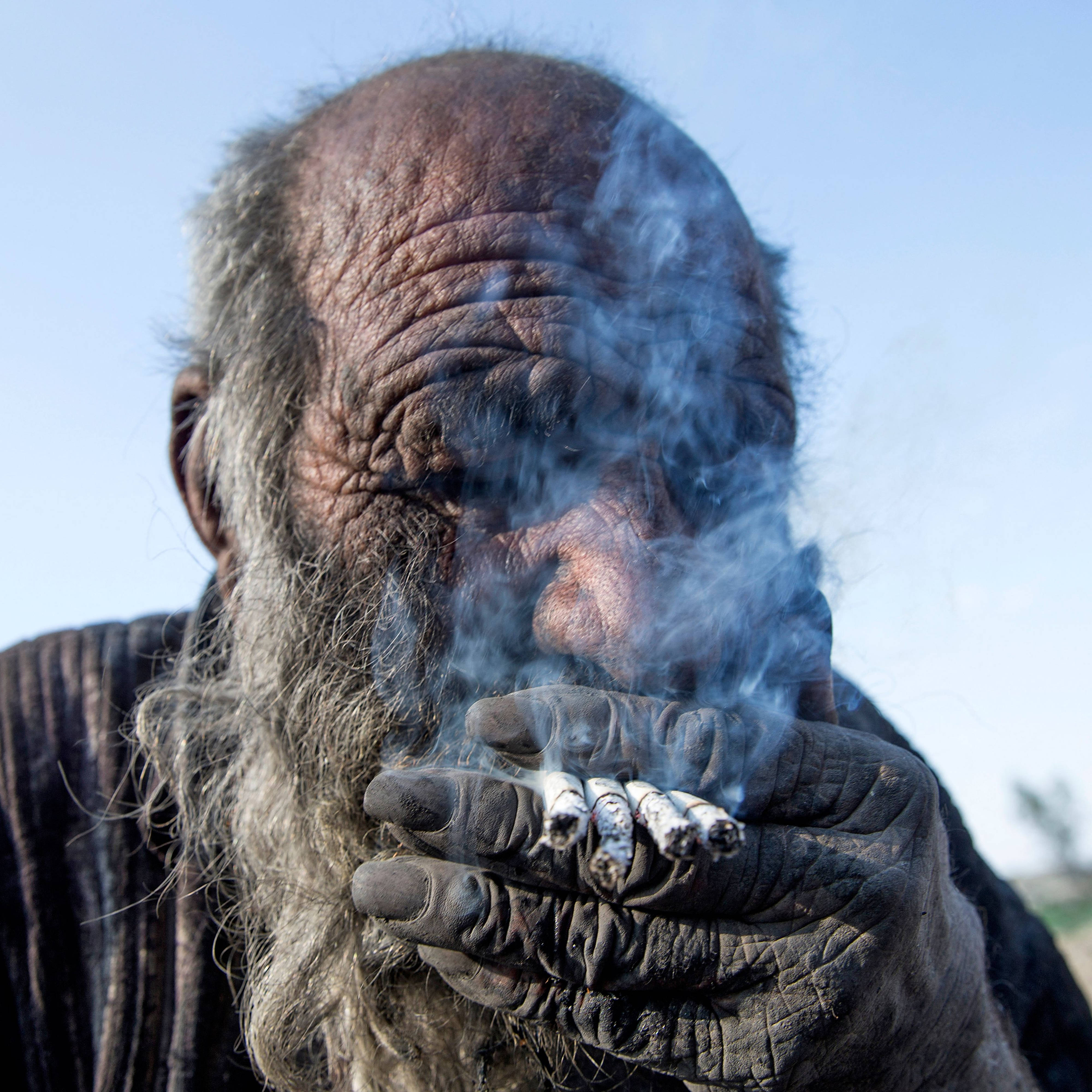Imagine going sixty years without a bath.
Most of us cringe at the thought, but for Amou Haji, known as the world’s dirtiest man, it was a reality.
Haji, who hailed from the village of Dejgah in southern Iran, avoided washing for over six decades due to a fear that it would make him sick.
Sadly, he passed away in October 2022 at the age of 94, just months after taking his first bath in a lifetime.
Early Life and Background
Childhood and Emotional Setbacks

Amou Haji’s unconventional lifestyle began early on.
In a 2014 interview with the Tehran Times, he revealed that “emotional setbacks” in his youth led him to become a nomad and adopt his unusual habits.
Though the specifics remain unclear, it’s evident that these experiences had a profound impact on the trajectory of his life.
As Haji withdrew from society, he found solace in solitude.
He chose to live a nomadic existence, eschewing the comforts of a traditional home for a simpler, yet far more extreme way of life.
Nomadic Lifestyle
For years, Amou Haji alternated between living in a hole in the ground and a brick shack built for him by concerned locals in Dejgah.
The villagers, though perplexed by his choices, showed compassion by providing him with this basic shelter.
Despite their efforts, Haji remained committed to his unconventional lifestyle.
He found a strange sense of comfort in his self-imposed isolation, even as it meant enduring extreme conditions and forgoing basic amenities.
The Fear of Cleanliness
Belief in the Harm of Cleanliness
At the heart of Amou Haji’s unusual lifestyle was a deep-rooted fear that cleanliness would cause him harm.
He believed that using soap and water would make him sick, a phobia that drove him to avoid bathing for over six decades.
This fear was so intense that Haji went to great lengths to avoid any semblance of hygiene.
He not only refused to bathe but also steered clear of fresh food and clean drinking water.
Impact on Physical Appearance
Decades of avoiding soap and water took a visible toll on Amou Haji’s appearance.
His skin was covered in soot and pus, a result of years of accumulated grime.
An author who visited him noted that Haji “blended into the barren landscape” and “resembled a rock” when he sat still, a testament to the extent of his uncleanliness.
Despite the obvious health concerns, Haji seemed to embrace his appearance.
It was a physical manifestation of his unconventional beliefs and a symbol of his commitment to his unique way of life.
Reactions of the Villagers
The villagers of Dejgah, though respectful of Amou Haji’s choices, did make efforts to encourage him to embrace cleanliness.
They tried to persuade him to bathe, offering him clean water and access to hygiene facilities.
For years, Haji resisted these attempts, finding solace in his solitude and his aversion to cleanliness.
However, a few months before his death, he finally acquiesced to the villagers’ requests and took a bath, a decision that would have unexpected consequences.
Unique Habits and Diet
Dietary Preferences

Amou Haji’s unusual lifestyle extended to his dietary habits.
He had a penchant for eating rotten porcupine and the carcasses of other dead animals he found.
Instead of clean drinking water, he opted for unsanitary water from puddles or rusted oil cans.
These choices, while undoubtedly harmful to his health, were consistent with his overall rejection of societal norms and his embrace of an unconventional existence.
| Amou Haji’s Unusual Diet |
|---|
| Rotten porcupine |
| Carcasses of dead animals |
| Unsanitary water from puddles |
| Water from rusted oil cans |
Smoking Animal Feces
One of the most shocking aspects of Amou Haji’s lifestyle was his habit of smoking pipes filled with animal excrement.
This practice, deeply unsanitary and harmful, contributed to his reputation as the “world’s dirtiest man.”
For Haji, smoking animal feces seemed to be another way of rejecting societal conventions and embracing a lifestyle that was uniquely his own, no matter how extreme or detrimental it might be.
Longevity Despite Unhealthy Habits
Despite his unhealthy and bizarre habits, Amou Haji defied expectations by living to the ripe age of 94.
This longevity is particularly surprising given the numerous health risks associated with his lifestyle.
Haji’s case raises interesting questions about the resilience of the human body and the factors that contribute to longevity.
While his habits were undeniably extreme, his story suggests that there is still much we don’t understand about the complex interplay of genetics, environment, and lifestyle on human health.
The Final Bath
Persuasion by Villagers
In the months leading up to his death, the villagers of Dejgah finally succeeded in persuading Amou Haji to take a bath.
This was no small feat given his longstanding aversion to cleanliness and his belief that washing would cause him harm.
The details of how they convinced him remain unclear, but it’s likely that the villagers’ persistent kindness and concern played a role.
After decades of living in isolation, perhaps Haji finally felt a sense of connection and trust with those around him.
Illness and Death
Tragically, Amou Haji fell ill shortly after taking his first bath in over 60 years.
Just a few months later, in October 2022, he passed away at the age of 94.
While it’s impossible to say for certain, many have speculated that there may be a connection between his sudden change in hygiene habits and his subsequent illness and death.
For a man who had built his life around the belief that cleanliness was harmful, the psychological and physiological impact of this shift cannot be overstated.
View this post on Instagram
Legacy and Public Fascination
The Strange Life of Amou Haji Documentary

In 2013, a short documentary titled “The Strange Life of Amou Haji” offered a rare glimpse into Haji’s world.
The film, which was met with both fascination and disbelief, helped to bring his story to a global audience.
Through the lens of the camera, viewers were able to see the realities of Haji’s daily life – from his unusual dietary habits to his aversion to cleanliness.
The documentary served as a testament to the diversity of human experience and the ways in which individuals can reject societal norms in favor of their own unique path.
Media Coverage and Global Reactions
Amou Haji’s story captured the attention of media outlets around the world, both during his life and after his death.
His lifestyle and his reputation as the “world’s dirtiest man” sparked intense debates about hygiene, health, and the limits of personal freedom.
Some saw Haji as a curiosity, a man whose choices were so far beyond the realm of normal experience as to be almost incomprehensible.
Others saw him as a symbol of the importance of individual autonomy and the right to live according to one’s own beliefs, no matter how unconventional they may be.
Comparison to Other Cases
While Amou Haji’s 60 years without bathing is certainly extreme, he is not the only individual to have eschewed cleanliness for an extended period.
In India, a man named Kailash Singh claimed to have gone 39 years without showering.
These cases, while rare, raise interesting questions about the role of hygiene in human health and the extent to which individuals can deviate from societal norms.
They also highlight the ways in which cultural and personal beliefs can shape behavior in profound and often unexpected ways.
| Name | Country | Years Without Bathing |
|---|---|---|
| Amou Haji | Iran | 60 years |
| Kailash Singh | India | 39 years |
Psychological and Sociological Insights
Mental Health Considerations
Amou Haji’s extreme aversion to cleanliness and his choice to live in isolation raise questions about his mental health.
While the specifics of his psychological state are unknown, it’s clear that his experiences and beliefs had a profound impact on his behavior.
Haji’s case highlights the complex interplay between mental health, personal beliefs, and lifestyle choices.
It also underscores the importance of understanding and compassion when confronting behaviors that deviate from the norm.
Societal Reactions to Deviance
The public fascination with Amou Haji’s story is a testament to the ways in which society reacts to those who deviate from accepted norms.
His lifestyle, so far removed from what most consider acceptable, provoked a range of responses – from curiosity and amusement to shock and horror.
At the same time, the kindness shown to Haji by the villagers of Dejgah is a reminder of the importance of compassion and understanding.
Despite his unusual choices, Haji was still a human being deserving of respect and care.
Hygiene and Health Debates
Amou Haji’s story also sparks broader debates about the role of hygiene in human health.
While the importance of cleanliness for disease prevention is well-established, Haji’s longevity despite his extreme habits raises interesting questions.
His case, while certainly not a model to follow, invites us to consider the complex factors that contribute to health and longevity.
It also highlights the ways in which personal beliefs about health and cleanliness can shape behavior and lifestyle choices.
Conclusion
The life and death of Amou Haji, the “world’s dirtiest man,” is a story that challenges our assumptions about health, hygiene, and the human experience.
His 60 years without bathing, his unusual diet, and his aversion to cleanliness are details that are hard to forget.
But beyond the shock value, Haji’s story is a reminder of the diversity of human beliefs and behaviors.
It’s a testament to the resilience of the human body and spirit, and to the power of personal conviction.
As we reflect on Amou Haji’s legacy, we are invited to consider the ways in which we judge those who are different from us.
His story, while extreme, is a call for compassion, understanding, and respect for the many ways in which individuals choose to live their lives.



